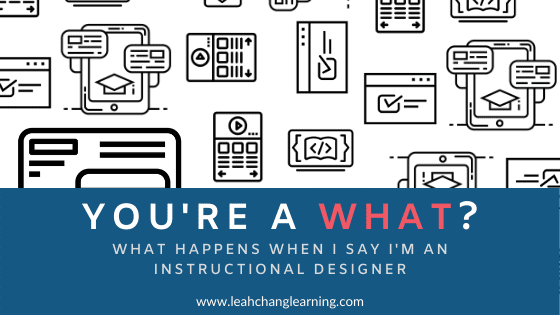It’s easy to fall into this trap: “I know what being an educator means- I had teachers growing up, so I know what they do for a living!”. If you pass up hiring an instructional designer with a background in education because of this, you may be missing out on a great consultant. You may have experienced a more passive style of instruction as a student, but things have changed a lot in education. Today’s teachers focus on creating learning opportunities for practice, discovery, inquiry, and iteration.
In other words, teachers do a lot of instructional design on a regular basis. What this means for you: Hiring an Instructional Designer or Learning Consultant with a background in education can be a perfect fit.
Here’s why:
- Educators follow provincial standards, so they know how to create activities and learning engagement events based on a set of pre-determined guidelines and topics. They create their own unit and lesson plans for an entire school year with the curriculum as the base. This means that learning consultants with an education background are well positioned to design learning that meets guidelines for accreditation or licensing authorities.
- Educators are experienced in bridging the motivation gap. They’re required to motivate students on a daily basis. (Imagine how hard it can be to get a classroom full of teenagers excited about learning grammar!) Motivation is essential with adult learners too—bridging that gap takes skill and practice. Educators are good at designing corporate learning for change management and addressing attitude gaps; they’re living breathing “change champions.”
- Educators are great “chunkers”. They can take complex topics and break them down into digestible chunks. Most educators do this every day without even thinking about it. They can tackle large, content-heavy concepts to design units and lesson plans specific to how their audience will best learn. This means, instructional designers who used to be educators excel at creating instructor-led training. They are the ideal consultants to provide your instructors and facilitators with ways to conduct breakout sessions, group activities, inject active practice, or just have fun learning in a classroom environment.
- Educators often teach topics outside of their area of expertise, so they’re used to being in the learner’s shoes. Sometimes being too close to a topic (as with most subject matter experts) makes it harder to explain to beginners. Having an instructional designer who is far removed from your topic means they’re better positioned to design materials (be it an in-person, eLearning or blended course) designed for how people learn.
- Educators are experienced public speakers. Beyond speaking in front of a class of 30+ students every day, they also speak at assemblies, committee meetings (district, provincial), parent advisory committee presentations, and union meetings. They make practiced facilitators, and are usually highly skilled at classroom management, crowd control and other elements important to good facilitation such as timing and pacing.
- Educators continually learn new things themselves, especially if they’re interested in technology. These learning professionals are curious, and brave enough to try new things; they’re dedicated to professional development and stay abreast of the latest developments in their fields. They continually update their practice with innovation. If they have moved into consulting as a learning technologist or instructional designer, you’ll reap the benefits of their ability to embrace new technology and explain it to others.
- Today’s educators are learner-focused. This is the most important trait you can leverage when hiring a learning consultant who used to be an educator. Teachers receive training and formal practice on the ‘flipped classroom’ model- they’re focused on how active and engaged learners are during instructional hours, and less on teacher-focused delivery.
The best teachers design units and lesson plans that put the student at the centre of the learning. This means that if you hire a former teacher, you’re less likely to deliver training styled on outdated or ineffective ‘talking head’, ‘stand and deliver’ or ‘death-by-PowerPoint’ presentation methods. Your learners will thank you and your business will see the measurable impact of a learner-centred approach.
Of course, instructional designers and learning consultants come from all sorts of backgrounds. There are many career paths you can take to become a learning consultant; it’s just a question of finding the right combination of experience and qualifications that best fits your organization’s needs.
One of the best parts of my work as an instructional designer and learning consultant is that I get to keep doing what I loved best about my job as a teacher: Designing creative, engaging ways for my students to learn complex topics. Helping organizations do the same for their employees or clients means I get to keep doing just that.
Read more about me if you’re curious!


